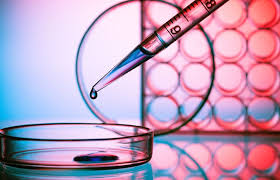Confirmation Bias (noun): The tendency to interpret new evidence as confirmation of one’s existing beliefs or theories.
Picture this…you’re arguing with someone and backing your statements with facts, however, the other person refuses to see it your way. I’m sure we have all experienced this, and it has driven many of us crazy. Their refusal to see it your way is likely because of confirmation bias which causes many people flat out ignore or disregard information that conflicts with their opinion. To get past this, the first step is realizing that we all have a bias regarding our own opinions and that we may not understand everything as well as we think we do! In this post, I am going to do the #DoNowConfirmationBias from KQED. This do now asks me to pick a controversial topic and research what the other side believes and why they believe this! The topic I have chosen is animal testing! I support animal testing because it has led to so many lifesaving medical cures and treatments, the animals are treated humanely by law, and there are no other real alternatives, to name a few reasons. But let’s get into why people are against animal testing. Warning: this blog post may contain graphic images.
- There is data suggesting that animal testing is actually cruel and inhumane. In 2010 the US Department of Agriculture reported that 97,123 animals have suffered pain with no anesthesia during experiments. For example, the Draize eye test (used by cosmetics companies) is done to test irritability caused by shampoos and other products, however, this test requires rabbits to be kept with their eyelids held open by clips (sometimes for days on end) so that they cannot blink. ouch

The stock rabbits are kept in to prevent them from moving or cleaning out their eye - Alternative testing methods exist, thus we can replace animal testing. In glass testing is known as in vitro testing which is where cells cultures in a petri dish are studied using human cells. Also, microdosing is a form of testing where small doses are given to human volunteers (doses too small to cause bad reactions) and then their blood is analyzed. Instead of testing chemicals on rabbits skin, researchers can use artificial human skin. And these are just three examples!

In Vitro testing - Animal testing does not predict reliable results in humans! Data shows that a whopping 94% of drugs that pass animal testing fail when given to humans in clinical trials.
- Animal testing is VERY expensive. Humane Society International discovered that an “unscheduled DNA synthesis” animal test costs $32,000 compared to the in vitro alternative which costs $11,000. It is also important to note the US National Institutes of Health (NIH) spends $14 billion of its $31 billion annual budget on animal research!
- Being that animals can suffer in the way humans do, it is speciesism to experiment on them. People opposed to animal testing often argue that just because animals lack the cognitive ability, language and moral judgment that humans have, does not mean they can be tested on. They often equate this to testing on humans with sever mental impairments, which we know is not right. An english philospher Jeremey Bentham once said,
The question is not, Can they reason? Nor, Can they talk? but Can they suffer?
These are just five of the reasons why many people are against animal testing, and I encourage you to look into it for yourself and reevaluate your own opinion. I still believe that despite these cons, animal testing is beneficial, but my beliefs have been challenged and I now have more appreciation for the cures and treatments that successfully come out of animal testing.
Sources:
“Animal Testing – ProCon.org.” Should Animals Be Used for Scientific or Commercial Testing?N.p., n.d. Web. 23 May 2017.
Engebretson, Monica. “Seventy Years Is Enough: It’s Time to Put the Draize Test Out of Its Misery.” The Huffington Post. TheHuffingtonPost.com, 16 Jan. 2014. Web. 23 May 2017.
Redazione. “REACH: taking up alternatives to animal testing.” Kosmetica World. N.p., 06 Nov. 2014. Web. 23 May 2017.